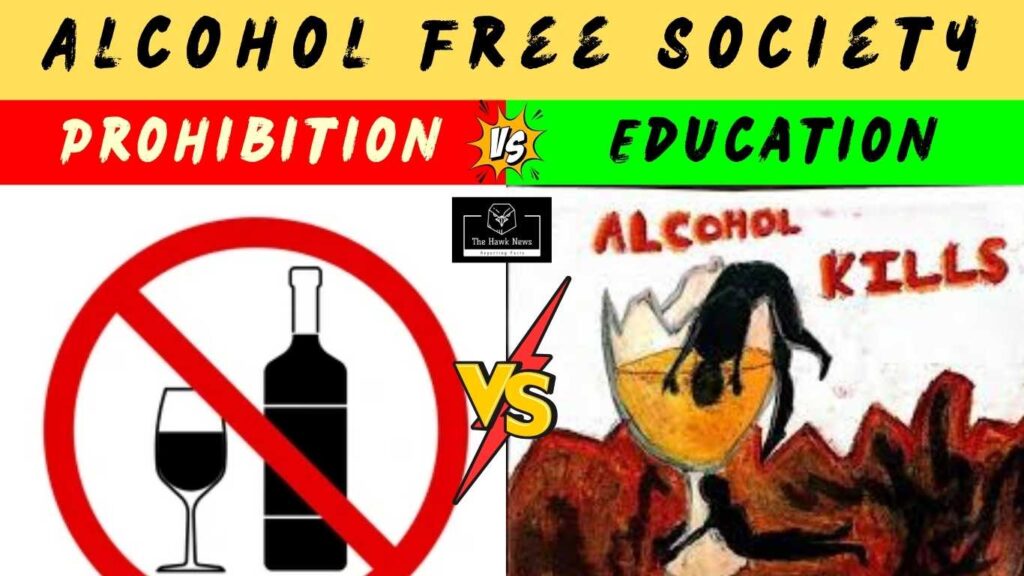
The Growing Trend of Alcohol-Free Statements: A Holiness or a Fashionable Gesture?
The discourse surrounding alcohol consumption and its regulation has taken a curious turn in recent years. The concept of being “alcohol-free” is increasingly portrayed as a mark of moral superiority or even holiness. What was once a personal choice or a public health initiative has now become a fashionable statement in many parts of the world. However, the issue is far more complex, with layers of social, political, and economic dimensions. Here are the key aspects unpacked in detail:
1. Alcohol-Free Statements as a Social Trend
- The notion of being alcohol-free is often associated with higher moral standing or spiritual purity.
- Celebrities, influencers, and political leaders have contributed to making “alcohol-free” a social and even aspirational statement.
- The trend has shifted focus from addressing the real social harms of alcohol abuse to glorifying abstinence, often without addressing the underlying causes of substance dependency.
2. Historical Attempts at Alcohol Prohibition
- Globally, prohibition policies have been implemented with varying degrees of failure:
- United States (1920–1933): The Prohibition era saw the rise of organized crime, black markets, and underground speakeasies.
- India: Several states like Gujarat and Bihar have implemented prohibition, often leading to smuggling, illegal production, and consumption of harmful alcohol.
- Nordic Countries: Sweden and Norway experimented with restricting alcohol sales but faced similar challenges of black-market activity and public dissatisfaction.
- History demonstrates that outright bans have unintended consequences, with underground markets often flourishing in the vacuum left by legal supply.
3. Governance vs. Individual Rights
- Governments can regulate and educate but cannot fully control individual behavior.
- While public health is a valid concern, imposing restrictions infringes on personal freedom and autonomy, unless the behavior directly harms others.
- Over-policing or moralizing the issue creates resistance rather than compliance, as seen in various prohibition attempts.
4. Black Markets and Harmful Substitutes
- Banning alcohol outright doesn’t eliminate consumption; it drives it underground:
- Unregulated production leads to dangerous and often lethal substitutes.
- Instances of mass poisonings from spurious liquor are common in countries with prohibition policies.
- The black market thrives on demand, and it becomes difficult for governments to monitor or control these activities.
5. Reducing Availability Is Not the Solution
- Reducing the number of stores or limiting sales hours does not significantly curb consumption.
- Alcohol consumption is an individual choice; those who wish to drink will find ways to procure it.
- Prohibition policies often ignore the broader social context, such as poverty, unemployment, and mental health, which drive excessive alcohol use.
6. Educational Campaigns Over Prohibition
- Governments can play a pivotal role in educating the public about the harms of alcohol through:
- Awareness campaigns.
- Incorporating health education in schools.
- Community outreach programs.
- Education empowers individuals to make informed choices without coercion or moral judgment.
7. The Role of Social Workers and Volunteers
- Community-led initiatives can address alcohol abuse at its roots.
- Social workers can provide counseling and rehabilitation support to individuals struggling with dependency.
- Voluntary groups are often better equipped to handle sensitive social issues compared to heavy-handed government interventions.
8. Impact on Society and Law Enforcement
- Alcohol abuse does have societal repercussions, including domestic violence, road accidents, and public disorder.
- Governments have the responsibility to act when individual behavior affects others negatively, through law enforcement and judicial action.
- However, regulating alcohol consumption beyond these instances often leads to overreach.
9. Fashion Statements vs. Practical Solutions
- Statements about closing liquor shops often serve as political gestures rather than practical solutions.
- Such declarations might win public approval but fail to address the complexities of the issue.
- A balanced approach involves allowing regulated access while focusing on harm reduction strategies.
10. Learning from Failures
- Evidence from around the world shows that prohibition is a failed model.
- The focus should shift from blanket bans to quality control, licensing, and responsible consumption.
- Governments should ensure the availability of standard, licensed products to prevent the proliferation of harmful alternatives.
Final Thoughts
The question arises: Does closing liquor shops stop people from drinking? History and evidence suggest otherwise. Consumption is dictated by individual choice and societal influences. Governments have a role in regulating quality and educating citizens, but overstepping into personal liberties often leads to backlash.
True change comes from changing mindsets, not enforcing restrictions. A collaborative approach involving education, community support, and responsible governance offers the most promising path forward.